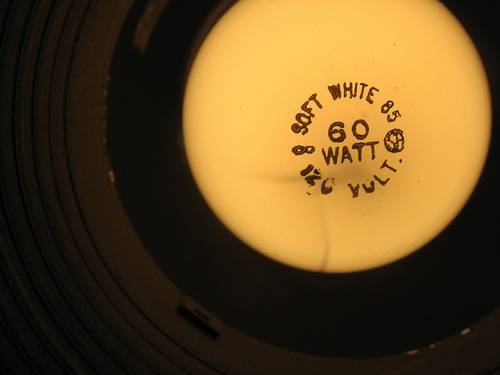Of course, we all use lightbulbs every single day, all day. Lightbulbs that are repeatedly blown can not only be frustrating, but a hazard as well. If your lightbulbs keep blowing, it’s worthwhile to consider the reasons for the problem. Then, do a little investigating and perhaps even call a licensed electrician if there are signs of deeper electrical issues.
Common Reasons Lightbulbs Keep Blowing
Cheap Lightbulbs
The most common reason lightbulbs keep blowing is that they are just cheaply made. As with just about everything, the saying “you get what you pay for” applies to lightbulbs, too. Low-quality bulbs not only tend to burn out faster, but they are often more susceptible to failure under conditions that are less than ideal. When a filament bulb blows, the filament breaks at its weakest point. Cheaper bulbs typically have thinner filaments, which leaves them more vulnerable to breakage. Using higher quality bulbs, ideally LEDs, will generally prevent these problems.
Electric Arc
A loose connection in the lamp holder (the socket where the bulb screws in) can also cause bulbs to repeatedly blow. When there are loose connections in the lamp holder, the circuit is not completed as tightly as it should be. This means that the electricity has to “arc” or jump across the contact points, rather than simply flowing through it. When electricity arcs, it produces more heat in the fitting than the bulb can handle, causing the bulb to blow.
If you suspect this is why your lightbulbs keep blowing, remove the bulb and check the bottom for dark spots or tiny indentations, called pits. These dark spots and pits are the telltale signs of arcing electricity.
If arcing electricity is what is causing your lightbulbs to blow, you may want to call an electrician for safety’s sake. However, there is one common, simple problem that you can fix on your own. Look into the light bulb socket and you should see a small brass tab that is slightly raised (you’ve probably seen this in a flashlight). If a lightbulb has been screwed in too tightly, this tab can become flattened, which can lead to arcing. If this is the case, you can bend this tab upwards again with your finger or a pair of pliers, BUT ONLY if the fixture is completely disconnected from electricity and its corresponding circuit breaker is shut off. This type of arcing is really the only circumstance that would be safe for you to repair on your own. Otherwise, just call a licensed electrician.
High Voltage
Even a small amount of excessive voltage can dramatically reduce the lifespan of light bulb. Like arcing, if a lightbulb blows due to high voltage, it is primarily due to the excess heat generated. Voltage that is too high or sustained over a long period of time can cause bulbs to blow. Many cases of high voltage originate from either your local electrical grid or in your own home electrical system. A licensed electrician can diagnose and correct the problem.

Using Bulbs with the Wrong Wattage
Another reason your bulbs keep blowing could be what is known as “overlamping.” Overlamping occurs when you use a lightbulb with a wattage that is too high for your electrical fixture to handle. This causes intense heat, which can not only cause the bulb to blow, but can melt the light socket as well as the insulation on the wires. Once that happens, you put yourself at risk of arc faults and even fires.
Avoid overlamping simply by using the correct wattage bulb. Most modern lamp fixtures have the recommended wattage listed somewhere in their assembly. If no wattage is listed, the general rule of thumb is to use a bulb with 60 watts or lower. As long as you don’t exceed the recommended wattage for the fixture, you should be in good shape.
Still Have Questions?
Most of the time, simply switching to a higher quality LED lightbulb can fix the problem. However, there are some cases where repeatedly blown lightbulbs is an indication of a deeper issue within your electrical system. For cases like these, calling Grounded Solutions for help is the only way to go. We’ve got the training, experience, and skills to safely put an end to the inconvenience, waste, and hazard of bulbs are repeated burning out.
